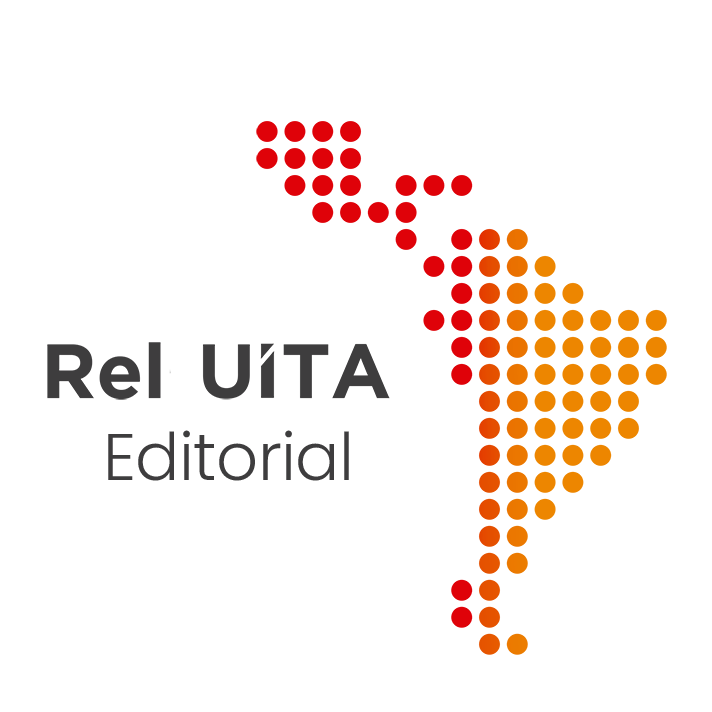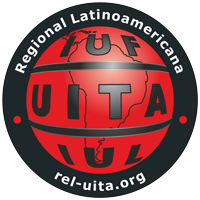
Rethinking ourselves in order to rethink the world
The door is open, we just need to step through and walk
As the days, weeks, and months go by, and we try to keep informed through various sources that we believe to be serious, we find that it is almost impossible to know where and how the first human being contracted COVID-19.
The battles—and even wars—of interests that are being waged between the lines are numerous and diverse and we are forced to be a captive audience to a barrage of harangues and mutual accusations, a script more fitting for a non-primetime television soap opera than for the men and women who are supposed to be leading the world.
But in this effort to get to the “origin of it” we also run the risk of getting lost in the small things and losing sight of the bigger picture. In this sense, little does it matter if a Chinese man had a bowl of bat soup made with a bat that had previously sucked the blood of a pangolin that was a coronavirus carrier, or if COVID-19 “escaped” from a biological lab in Wuhan where it was produced with funds from the United States, or if—under the trade war between these two countries—the virus was “planted” in Wuhan in September 2019 during the Military Games in which delegations from many countries participated. In the end, it makes no difference.
Why not? Why does it not matter? Because if we zoom out and expand our frame, we will see that there are no bats or pangolins, no China or the United States that can explain the situation. This same thing happened with pigs and poultry, and something similar with cattle, when “mad cow” disease spread to hundreds of human beingsi before it could be contained.
And if we leave the animal kingdom and focus on plants, we find genetically-modified crops, whose safety for humans has not been proven and there are very strong indications that their consumption causes a range of alterations. Not to mention the effects of the “technological package” required for its large-scale production.
We should recall here the origins of the so-called “Green Revolution”—that change in the production paradigm imposed by the United States throughout the world in the 1950s, which caused the first global chemical contamination in history as a result of the massive use of organochlorine insecticides. Thousands, perhaps millions of cancer deathsii have been caused by these “leftovers” from the military chemical arsenal of the Second World War, which were only slightly modified for use in agriculture.
Twenty-five years ago we said that “in the last five decades the capitalist production model has altered the planet’s environment more than the development of humanity had in the previous ten thousand years.”
The gradual construction, starting in the Industrial Revolution, of a dominant and global production system based on obtaining the greatest possible profit, in the shortest time and with the lowest costs, has brought us to our current reality.
Naturally, the first to be sacrificed on this altar of greed have been, are—and will be?—the workers. The vast majority of them are victimized threefold: first by the appalling safety and health conditions in their workplaces; second as citizens and consumers who suffer the consequences of global pollution and—as we are seeing lately—the reckless altering of the basic laws of nature; and third as they are forced to pay out of their own pockets for the damages of these catastrophes, a cost that is externalized or socialized by the companies and corporations that cause them and profit from them.
That means that if we do not zoom in and keep our frame wide open, we can see a small—and increasingly smaller—group of people who are appropriating the Earth’s natural resources, subjecting humanity to working paces and conditions that are unhealthy and right down deadly, paying workers the lowest possible wages, socializing the environmental costs of their “serial killer” model of production and distribution without being held accountable for it, accumulating over the years a capital so vast and so concentrated that it is capable of self-perpetuating … until “something” gives and the world says: Enough!
That “something” could be a pandemic like the one we are currently suffering, or two or three of them in a row or combined, or perhaps other catastrophes that are now difficult to predict or even imagine. But it could also be an active “Enough!” from a society that realizes the power it has when it is capable of organizing together and coordinating around common goals. History teaches us that there is nothing more powerful than that.
The recent editorial penned by the president of Rel-UITA (IUF Latin America) Norberto Latorre has been very motivating and it traces a possible path for us. We would, obviously, not be starting from scratch, as the labor movement has been gathering experience for over a century and a half, with ebbs and flows and advances and setbacks, naturally, but always ready to give battle for better wages and working conditions, for labor rights and the right to organize, and even for justice and freedom when necessary.
In reference to the current unsustainability of the dominant production models, Norberto says “it is vital that labor organizations in our region, and in the world, assume a more active role in this matter.”
“We will not be able to change the course of the current systems on our own. We are hearing louder than ever the call of solidarity, of coming together, of collective reflection and struggles, of proposals capable of summoning the great majorities to give the future a chance.”
“Organized, with new ideas and strategies, and together with the people, we will find the paths toward the changes we need.”
Nothing short of an agenda then. We should take advantage of this initial step that kicks us off, this sensible call issued without fanfare, without preconceived judgments, a plural call, eager to bring people together. It is up to the rest of us to take, or propose, the next step.
For many years now, perhaps since it was re-founded in 1967, Rel-UITA has assumed the restless, inquisitive, and forward-looking spirit that characterizes the region, generating profound changes that democratized its internal structure, emphasizing the importance of team work alongside individual leaderships, creating and replicating study circles that promoted those values while at the same time training new leaders, challenging the established doctrines to build new visions, developing novel tools for understanding the world, and trying to be one step ahead of the threats and opportunities that could arise for workers in the future.
There are dozens of cases and issues that could be mentioned in which Rel-UITA has spearheaded efforts to reflect and take action, but that exceeds the purpose of these lines. I do, however, want to recommend here the book “Rel-UITA – 39 years of history. A collective biography.”
Today, Norberto Latorre, president of the Regional Organization, is once gain invoking that tradition with the aim of spurring us into action during this quarantine, and after it is over. Everything depends on us, he says, and on knowing how to come together with “the others.”
It has been shown many times over that this system of production and social, economic, and political organization will not provide solutions that attack the root of the problem; it will only bring more and more problems.
Because that system puts money and greed at the center of everything, instead of human beings and their basic needs—and by means we do not mean just food, housing, education, health, and freedom, but also the right of future generations to survive in a healthy, environmentally-balanced, diverse, and peaceful planet.
It is also very clear that these are not the objectives or the path currently imposed by the dominant model—quite the opposite.
So let us look for spaces to reflect and generate new proposals, proposals that are open to studying and understanding currents of thought and action that are already expressed in society, and which allow us to incorporate those currents into the aims we pursue.
Let us then reach out to other social organizations to share and dialogue with them and to grow together and redefine ourselves with a forward-looking perspective.
This crisis we have been thrown in by the pandemic, which lays bare the cruelty and senselessness of neoliberalism, is a stark warning written in neon letters across the sky, telling us that the sustainability of any system is essential for the survival of humanity.
Environmentalism is where the greatest strides have been made in terms of developing a theoretical and scientific and social research framework on this subject. While in any social organization there are opportunistic, fanatical, and out-of-touch elements, we should look beyond them and find common ground. The global environmental movement and the international labor movement must find the best way to come together in a path of unity, or alliance, or mutually-respectful coordination, taking steps that will gradually lead to superior forms of intelligent and strategic articulation.
Nobody says this will be easy. It will not be easy for anyone. But the consequences of not trying will be much more difficult.
As our president Norberto Latorre wrote: “We need to rethink the world and trade union action. We will move forward with rebelliousness, courage, and new proposals.”
i Creutzfeldt–Jakob disease
ii “Silent Spring,” by Rachel Carson (1962)
